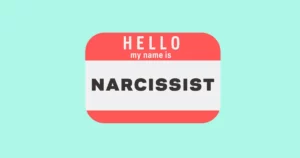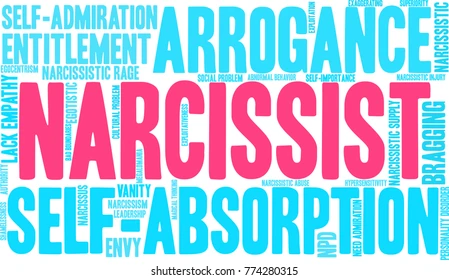Narcissism is often viewed as a personality disorder that is characterized by excessive self-love and a lack of empathy for others. While this may be true of some narcissists, there is another type that is often overlooked: the introverted narcissist. This type of narcissist is quieter and more reserved than their extroverted counterparts, but they are just as harmful to those around them. In this blog post, we will discuss how to spot and deal with an introverted narcissist.
Contents
Who Are Introverted Narcissists?

Introverted narcissists are people who exhibit many of the same qualities as other narcissists, but they tend to be less outgoing and more reserved. They may not seek out the attention of others as extroverted narcissists do, but they still need to feel like they are the center of attention. This need for attention often manifests in manipulative behavior. Introverted narcissists will often try to control those around them to get what they want.
Causes Of Introverted Narcissism
There is no one cause of introverted narcissism. Like other forms of narcissism, it is thought to be the result of a combination of genetic and environmental factors.
For example, someone who is raised in a household where their needs are always met and they are never challenged may be more likely to develop narcissistic tendencies. Facing abuse as a child can also cause people to stay quiet and reserved about their nature.
Facing trauma (example: death of a loved one, assault, robbery)and not having someone to talk about it to may also fuel the introverted urge to keep things inside; causing a further increase in narcissistic tendencies.
How To Spot An Introverted Narcissist?

There are several signs that you can look for if you suspect that someone might be an introverted narcissist.
- Need to be right all the time.
- Having a strong need for attention, even if they don’t seek it out from others.
- Imposing manipulative and controlling behaviors on others
- Feelings of extreme jealousy/inferiority
- Masking a fragile sense of self with an obnoxiously high confidence
- Unanticipated anger outbursts
- Vulnerable to substance abuse
- Tendency to withhold affection
- Extremely defensive
- Difficulties in being expressive about feelings
- Do not showcase any empathy for anyone
- Sensitivity to criticism
Treatment For Introverted Narcissism
Since there is no known cure for introverted narcissism, the available treatment options can help those with the disorder manage their symptoms and learn how to live a healthier life.
Psychotherapy is often recommended for people with this disorder. This type of therapy can help them learn how to cope with their need for attention and control. It can also teach them how to develop healthier relationships with those around them.
Some therapies used in dealing with narcissism include:
- CBT
- Schema therapy
- Gestalt therapy
- EMDR therapy
- Transference-focused psychotherapy
Medication can help with introverted narcissists’ depression and anxiety. This will allow them to focus on therapy and make progress.
Dealing With Introverted Narcissists

If you find yourself in a relationship with an introverted narcissist, there are several things you can do to try and deal with them.
- The most important thing is to set boundaries. You need to make it clear what you will and will not tolerate from them. This may be difficult, as they will likely try to manipulate you into giving them what they want. However, you must stand your ground.
- Study and learn about introversion and narcissism. Educating oneself about someone’s condition will not only help you understand more but also increase your empathy.
- You also need to be honest with yourself about what you can and cannot handle. If their behavior is too much for you, it is okay to walk away. This is especially true if they are unwilling to seek help for their disorder.
- Dealing with a narcissist can be emotionally draining. Make time for yourself by maintaining a healthy distance, indulging in self-care, and leaning back on your support system to help your morale.
- Try to have empathy for yourself. It can be difficult living with or being in a relationship with someone who has this disorder. Remember that you are not responsible for their behavior and that you deserve to be treated with respect.
- Despite the therapeutic intervention, medication, or confrontations, a narcissist might not be open to accommodating changes. In such severe and insensitive cases, it is best to prepare oneself for ending the relationship.
Conclusion
While introverted narcissists may not be as outwardly arrogant and grandiose as their extroverted counterparts, they can be just as harmful to those around them. Because they are often more subtle in their approach, introverted narcissists can be even harder to spot and deal with. If you suspect that someone in your life is an introverted narcissist, it is important to seek professional help. A qualified mental health professional can also diagnose introverted narcissism and provide you with the tools you need to deal with this difficult personality disorder.
A Word From Therapy Mantra
Your mental health — Your psychological, emotional, and social well-being — has an impact on every aspect of your life. Positive mental health essentially allows you to effectively deal with life’s everyday challenges.
At TherapyMantra, we have a team of therapists who provide affordable online therapy to assist you with issues such as depression, anxiety, stress, workplace Issues, addiction, relationship, OCD, LGBTQ, and PTSD. You can book a free therapy or download our free Android or iOS app.


